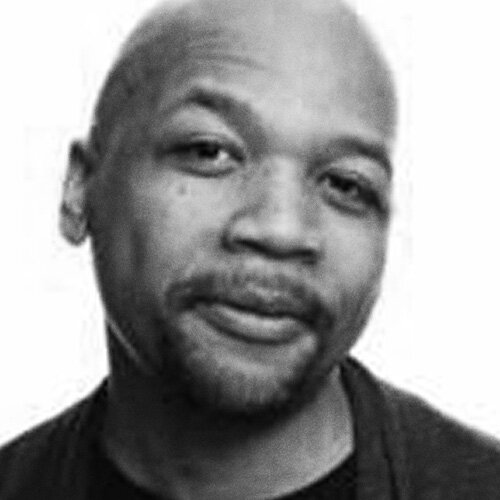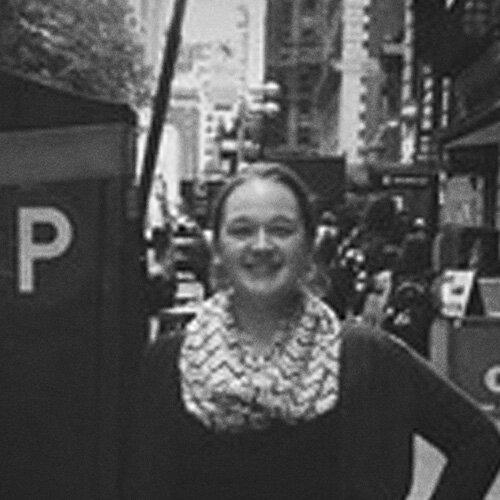Frustrating Mystery #2: My Holds Keep Falling Through
Beloved Contributors
The Void
I’d like you to visualize a black void.
In that void, sits the Freelancer. The dancing light of their screensaver illuminates two hands, clasped in prayer. They desperately vow their allegiance to disparate gods, asking only one favor in return: that Work will come their way. It is not known where the Work comes from, but surely it’s supernatural.
Now I walk in. I turn on the lights.
HAHA. Freelancers look really silly.
But besides that, what do we see? We learn that it’s not a black void after all, its an office! There’s even other people there. They call themselves Producers and Production Managers but they kinda sorta look like Freelancers. Maybe we can talk to them and figure out where they’re getting all this Work from?
Butterflies & Revelations
Until there’s an email in our inbox, we’re often clueless about when our next job is coming or who it's going to be with. But it doesn’t have to be that way. Those jobs that came your way weren’t random, they were solutions driven by business needs weeks in the making.
Entire careers exist around scheduling the industrial chess board. These chess masters are known as Production Managers. If you could understand the pieces at play moving the way they do, what would that knowledge empower you to do? Could you forecast Work like weather? Plan around that forecast? Use it to acquire more Work?
When your only clue is your inbox, it seems to come out of the blue. But with the right knowledge, you could be proactive and approach companies when they need your help instead of throwing your line in the water after all the fish have already been fed.
With this post I wanted to demystify much of the frustration that permeates life as a freelancer. Not finding work, not getting hired, not hearing back from applications; sound familiar? When we run into these problems it’s easy to look inward and say we're just not good enough. But to understand the whole truth, we need to see the industry from a clearer vantage point. Let's dive in.
Frustrating Mystery #2:
My Holds Keep Falling Through
What’s Really Going On Behind the Scenes
ONLY ABOUT 10-30% OF HOLDS TURN INTO BOOKINGS!
"For every 10 people I have on hold, we'll book 1-3 of them... BUT this probably doesn't make sense for you or actually matter to you. As a producer, constantly planning on projects that may not even award or run the production schedule we're told during the pitch, it's just a part of the job to try to always have as much talent lined up as possible for the longest hold length in case something comes in or production gets delayed." -Will Arnold
Pitches. Pitches are the bane of the motion graphics industry because they require studios to do work for free. They are also probably the reason why a lot of your holds fall through. This all makes sense once you learn that companies line up their holds before they actually win a pitch. If they don't win the pitch, you are released and probably at least a little bit disappointed. Here’s why it happens over and over again.
Pitch Job Process
Even before any producers get involved there's a whole bunch of work to create the pitch itself. The agency that is coordinating the pitch creates a strategic brief for their clients before they even send the bid out. The strategic brief goes something like:
“In 2018, our company plans to do ______, so we're going to go out and try to create a brief that tells the studios what______ is so they can create work that will help us accomplish______ goal.”
After the bid is created, there's a period of time where the agency decides with the brand what studios/ companies they want to work with. If it's a pitch and its for a large project, agencies will typically require a triple bid. (which means there's 3 people competing for the work) Sometimes they reach out directly, but sometimes there’s a middleman involved called a rep. A rep helps pair studio talent with the needs of these companies creating the bid. They’re more intimately familiar with the capabilities and strengths of different studios, so they are an informed opinion. These companies can rely on them to make sure they are reaching out to the places best suited to the type of project they want to create. Once they’ve decided on who is the best fit for the job, the reps or the agencies will then reach out to those studios. They will be like “we have this job, this budget and this amount of time, are you willing to pitch on it?” The studio then has to agree to pitch on the project, usually knowing that pitches are unpaid work.
The pitch process can be as long as a week or a couple of months, and if they’re long, it’s not out of the question to get a development fee of some sort for this. If they are interested, the companies hire who they need to hire to do the pitch and give it their all. This process has earned a reputation in the industry as being one of the more intense periods of work as since companies aren’t paid well or at all, they’re really taking a gamble by hiring people to do it. They play to win, so late nights and all hands on deck are usually par the course.
Once the work is done and the pitch date has arrived, the companies do their presentation and usually wait at least a week, though up to 4 weeks to see if they are awarded the job. Once the job awards, then the producers get their ducks in a row and actually pull the trigger on booking the people they lined up for the real production work. The confusion with the hold system usually stems from this crucial fact: In order to plan the job, you try and have your team set up and everyone on hold before they know if they won the pitch. They’re waiting for the award to pull the trigger on hiring people.
“I’ve personally been hired before a project awarded and then they lost and they had to cancel my booking,” said Will Arnold. Needless to say this sucks for everyone. “It puts producers in a weird position because there's a good chance this thing is coming in and we might want you in. So we’ll line up our entire team and their schedules before it awards so i can just hit go once it’s officially a thing.” If a job has a live action component, the nightmare is even larger. You have holds for cameramen, stages and entire crew of people. “You need to plan out and book everything because you need to shoot as soon as it's a go.”
The alternative to pitch work is definitely more likely to guarantee a successful booking from a hold, and that’s direct award work. These jobs come from a pre-existing relationship a company has with a client, so they've already proven that they deserve the work. (Ex: When I met Will at Imaginary Forces, Reeses was a staple client who has produced over 100 different spots together with them) “I think it's probably about a 50-50% direct award/ pitch work.” These studios want to get away from pitching, no one wants to do work for free. They pay tons of people and pay lots of overhead. In IF’s case, they are a 20-year-old company with a great resume, so hopefully they don't have to pitch for free. It makes sense for unknown companies and individuals to pitch for work to prove themselves and their creative prowess, but large companies with a track record shouldn’t have to, the work should come to them.
How to Take Control:
Cheat the Hold System
A common tactic for avoiding getting caught up in the hold system is to place a permanent first hold on yourself. NEVER tell the client that you are the one with a first hold because they won't appreciate it. But if you want the right to turn down any opportunity guilt free, this is an easy solution. I first learned about this in the excellent book The Freelancer's Manifesto by Joey Korenman. The only caveat I've run into with this is that studios are less likely to hire someone who they have a second hold with than they are someone who gave them a first hold. Especially if you're dying to work at a studio, you don't want to take away a reason they might have to book you. But for studios that you don't want to commit to whole heartedly you can give yourself an out by utilizing this strategy.
Reel Research
If you're constantly being let down by the holds you've agreed to, then the only strategic choice you can make as a freelancer is to try to target companies with more direct award work than pitch work. If you're trying to target these companies, I recommend the REEL RESEARCH strategy outlined above, to find companies with a history of steady repeat clients (direct award work) whose love they don't need to earn with precarious unpaid pitches.
Conclusion
My hope is that this article helped you understand some of the factors that affect whether you're employed or unemployed. It isn't possible to control everything but there's always an action you can take to improve your odds of success despite a job climate that may or may not be in your favor. At the very least I hope you find some comfort in shining a light on what's going on behind the scenes, as it's effecting your bottom line every single day.






